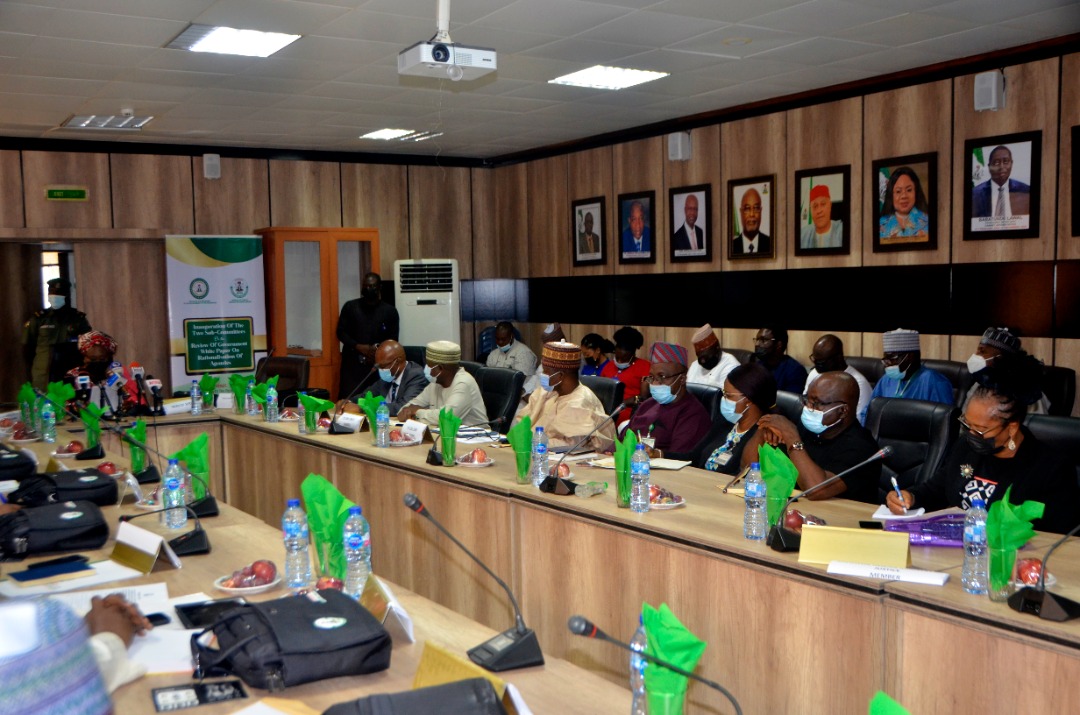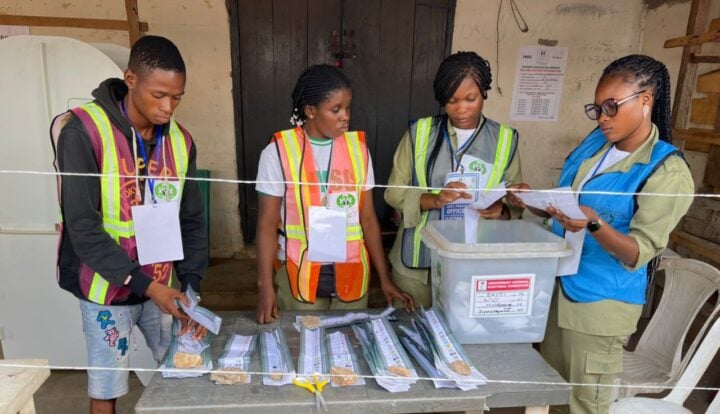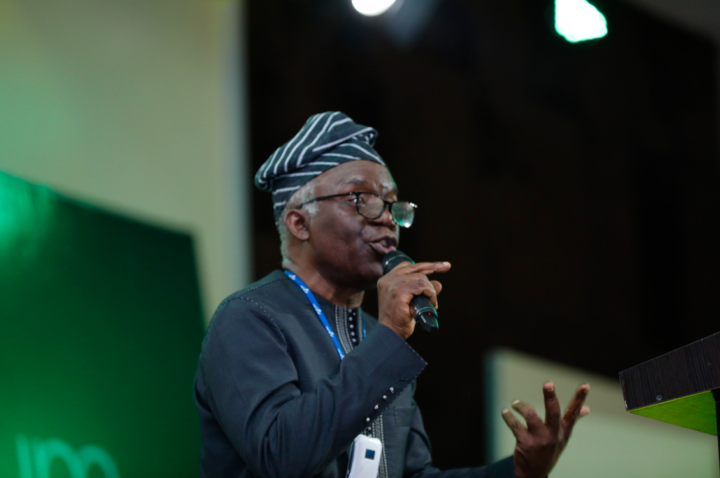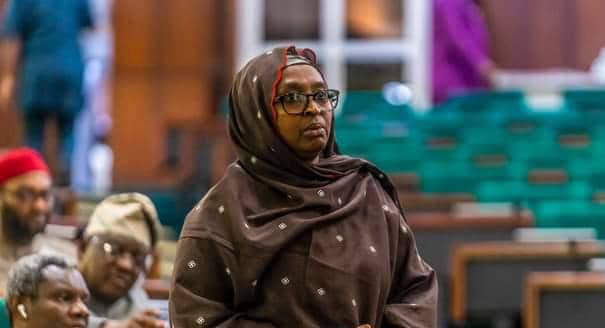Inauguration of the sub-committees for the Oransaye report, held in November 2021
The federal government says the sub-committees on the implementation of the white paper on the restructuring of ministries, departments, and agencies (MDAs) will soon submit their reports.
Maurice Mbaeri, permanent secretary, office of the secretary to the government of the federation, said this on Wednesday at a media parley organised to commemorate the 2022 civil service week in Abuja.
In November 2021, the federal government inaugurated two sub-committees chaired by former heads of service of the federation — Bukar Aji, Amal Pepple and Oladapo Afolabi – on the implementation of the report of the Stephen Oronsaye-led presidential committee.
In 2011, former President Goodluck Jonathan constituted the Oronsaye-led panel to identify inadequacies in the country’s civil service.
Advertisement
In 2012, the committee submitted its report and recommended the abolishment and merging of 102 government agencies and parastatals.
The committee on the white paper for the report submitted its report in 2014.
Giving an update on the activities of the sub-committees, Mbaeri said the sub-committees have concluded their assignments and will soon submit their findings for implementation.
Advertisement
The permanent secretary added that the first sub-committee was meant to review the white paper of the Oronsaye panel report, while the second one was to evaluate all other government agencies established after the submission of the report.
“As these two committees are preparing to submit their recommendation, I can assure Nigerians that very soon, the report will be out,” the government official said.
Responding to a question on alleged corruption in the appointment of permanent secretaries, Folasade Yemi-Esan, head of the civil service, accused some civil society organisations (CSOs) of deliberately causing trouble.
Yemi-Esan added that some CSOs had in the past questioned why directors were being mandated to pass computer-based tests before their appointment as permanent secretaries.
Advertisement
She queried why a potential permanent secretary will not be subject to computer-based tests, considering that the world is embracing digitalisation.
“If the service is going digital, why should permanent secretaries who are the drivers of the digitalisation process not take computer tests? This is our argument,” she said.
“As part of the reform initiatives by this administration, permanent secretaries who are not computer literate cannot be expected to improve on service delivery.”
Advertisement
Add a comment






